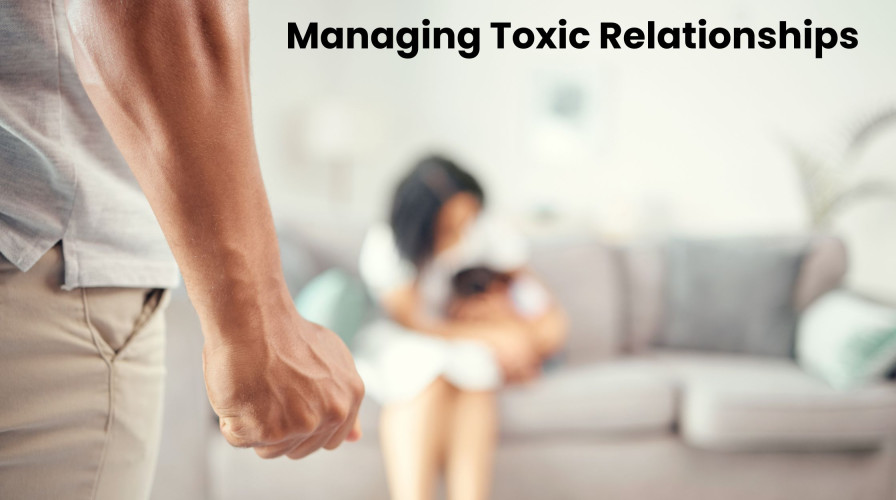Toxic relationships can be incredibly draining, affecting both mental and physical well-being. Recognizing the signs of a toxic relationship and learning how to address them is crucial for maintaining a healthy and balanced life. This article explores the key indicators of toxic relationships and offers practical advice on how to manage and, if necessary, move on from them.
What Is a Toxic Relationship?
A toxic relationship is one in which the negative aspects outweigh the positive, often leading to emotional or psychological harm. These relationships can occur in any setting—romantic, familial, or even professional. The toxicity stems from patterns of behaviour that are manipulative, controlling, or otherwise harmful to one or both parties involved.
Signs of a Toxic Relationship
Identifying a toxic relationship is the first step toward addressing it. Here are some common signs to watch out for:
1. Constant Criticism and Belittling
In a toxic relationship, one partner may regularly criticize or belittle the other, making them feel inadequate or unworthy. This behaviour can erode self-esteem over time.
2. Lack of Support
Healthy relationships are built on mutual support. In a toxic relationship, however, one partner may feel neglected or unsupported, particularly during challenging times.
3. Manipulation and Control
Toxic partners often use manipulation or control tactics to maintain power over the other person. This can include guilt-tripping, gaslighting, or isolating the partner from friends and family.
4. Emotional Unavailability
A toxic partner may be emotionally distant, refusing to engage in meaningful conversations or avoiding intimacy altogether. This creates a barrier that prevents the relationship from growing.
5. Constant Drama and Chaos
If the relationship is marked by constant drama, arguments, or instability, it may be a sign of toxicity. Healthy relationships generally provide a sense of stability and security.
The Impact of Toxic Relationships
The effects of a toxic relationship can be far-reaching, impacting various aspects of life. Individuals in toxic relationships often experience increased stress, anxiety, and depression. Their self-esteem may suffer, leading to feelings of worthlessness or hopelessness. Additionally, toxic relationships can strain other important relationships, as the person may become withdrawn or irritable due to the ongoing turmoil.
How to Deal with a Toxic Relationship
Once you recognize that you’re in a toxic relationship, the next step is to decide how to address it. Here are some strategies for managing a toxic relationship:
1. Set Boundaries
Establishing clear boundaries is essential in any relationship, but particularly in toxic ones. Communicate your limits and make it known what behaviours you will not tolerate. Consistently enforcing these boundaries can help reduce the impact of toxicity.
2. Seek Support
Reaching out to trusted friends, family members, or a therapist can provide valuable perspective and emotional support. They can help you navigate the situation and offer guidance on the best course of action.
3. Focus on Self-Care
Prioritize your own well-being by engaging in activities that promote mental and physical health. Exercise, meditation, and hobbies can help reduce stress and improve your overall outlook.
4. Consider Professional Help
If the toxic relationship is deeply ingrained or difficult to manage on your own, consider seeking the help of a professional therapist or counsellor. They can provide tools and strategies to cope with the relationship or assist in making the decision to leave.
5. Evaluate the Relationship
Sometimes, the best way to deal with a toxic relationship is to assess whether it’s worth continuing. If the relationship is beyond repair or consistently harmful, it may be time to consider ending it for the sake of your own health and happiness.
Moving Forward: Life After a Toxic Relationship
Leaving a toxic relationship can be challenging, but it’s often necessary for personal growth and healing. After ending such a relationship, give yourself time to recover and rebuild your self-esteem. Surround yourself with positive influences and focus on activities that bring you joy and fulfilment. Remember that moving on from a toxic relationship is a powerful step toward a healthier and happier future.
Toxic relationships can have a profound impact on your mental and emotional well-being, but recognizing the signs and taking action is crucial. By setting boundaries, seeking support, and focusing on self-care, you can manage or leave a toxic relationship, paving the way for a more positive and fulfilling life.










